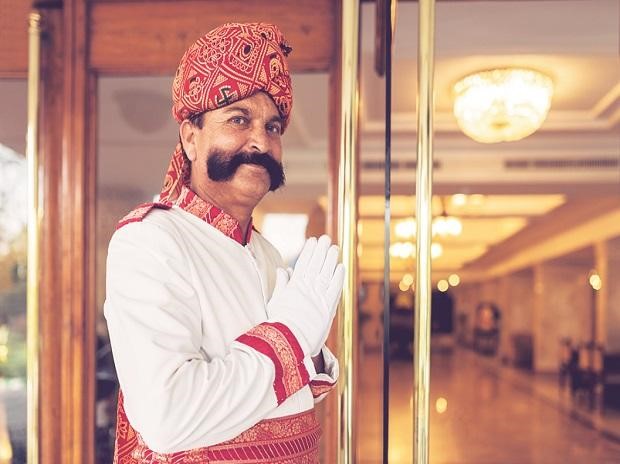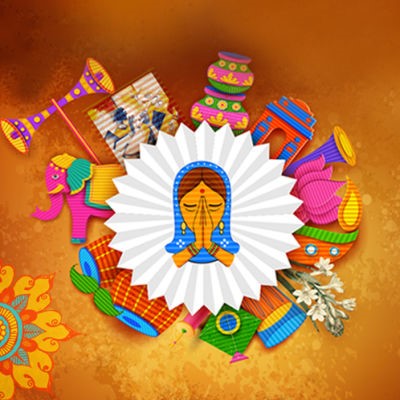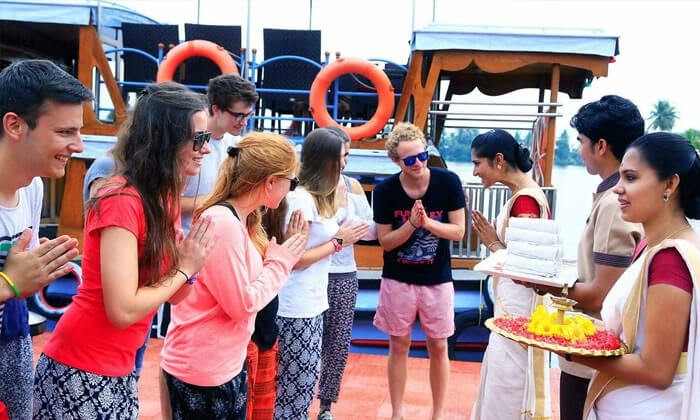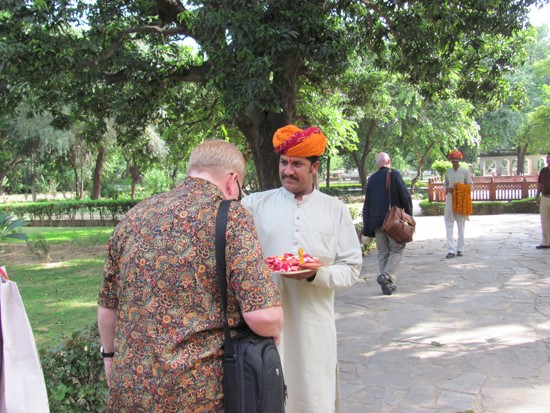Perhaps, the one thing that takes everyone by surprise and also deeply touches everybody during their tour to India is the experience of warm hospitality of the Indian people.

A ready smile on the face, always willing to go out of the way to help people, exuding the expression of genuine happiness upon meeting a person – these are some of the common traits one finds in most of the Indians. The Sanskrit adage, “Atithi Devo Bhava,” truly means that the guest is truly your God and dictates the respect granted to guests in this country. So it’s understandable as to why the tourists wish to visit India again. The tradition of Aarti and Garland that some of the hotels practice as a mark of respect and treating him as God is, in itself an act wherein one is seen worshipping a deity and offering all that one can afford to offer.
The Vatel Hotel and Tourism Business School, Sushant University, the best Hospitality institute in south of Haryana is in academic affiliation with the Institut Vatel of France and encourages its students to explore new avenues of hospitality and inspired them to conduct researches in different domains connected with hospitality.
 From where did we pick up these traditions? Is it not due to the rich history, the tradition that our civilization has acquired over a couple of centuries? The trend of hospitality in India is, thus, a very deeply rooted profession and forms part of a very strong tourism sector. When one chooses to stay in a hotel, all care is extended by the people to give you comfort, good food, peace and security. However, should you wish to know what the authentic Indian hospitality is, the best experience one can get is during a stay at a house of a native Indian. Food is the way to win a person’s heart is a saying that is so deeply embedded in us that If you refuse to eat what your host is offering you with love, it can mean a high offence and breach of love and trust. Indians like to serve various types of tasty mouth-watering local cuisines to their guests. So it shouldn’t be surprising if right upon entering a house that you get the aroma of sizzling dishes and, within minutes of your making yourself comfortable, trays of the best of delicacies, usually cooked at home start being served as if they were arriving in a conveyor belt.
From where did we pick up these traditions? Is it not due to the rich history, the tradition that our civilization has acquired over a couple of centuries? The trend of hospitality in India is, thus, a very deeply rooted profession and forms part of a very strong tourism sector. When one chooses to stay in a hotel, all care is extended by the people to give you comfort, good food, peace and security. However, should you wish to know what the authentic Indian hospitality is, the best experience one can get is during a stay at a house of a native Indian. Food is the way to win a person’s heart is a saying that is so deeply embedded in us that If you refuse to eat what your host is offering you with love, it can mean a high offence and breach of love and trust. Indians like to serve various types of tasty mouth-watering local cuisines to their guests. So it shouldn’t be surprising if right upon entering a house that you get the aroma of sizzling dishes and, within minutes of your making yourself comfortable, trays of the best of delicacies, usually cooked at home start being served as if they were arriving in a conveyor belt.
Most Indians live in joint families. Very often one would find the in-laws, uncles, cousins and others staying together in the same house. Saying Namaste to a guest is integral to guest hospitality in India and you can expect every member to greet you this way with folded hands and, of course, with a smile.

The womenfolk, since the major part of Indian hospitality hovers around the service of food, form the backbone of traditional hospitality as they are the ones who look after the production and the service of food. They are known to never ever let a guest go back unfed from their home. Indian women are great cooks and can scurry up delectable dishes in no time.
The first thing served is a glass of water, irrespective of whether you are thirsty or not. The way, the style and the sophistication with which water is served gives one an indication of how the rest of the experience is going to be. This tradition goes back to the ages when a guest would come walking from long distances, would be tired, thirsty and might even wish to wash his hands and feet. The system of transport may though have changed now, the service of water has remained and continues from the old ages.
Even strangers on the road are so friendly and hospitable to tourists. If you ask them where a certain shop or place is located, chances are people will, apart from giving you the direction, also accompany you your destination, especially when the place is nearby. Indian people feel that their guests should be given proper warm hospitality, which certainly requires extreme care and a personalized attention.
All meals served to guests have to have a dessert and the traditional Indian ones have gained immense popularity.

